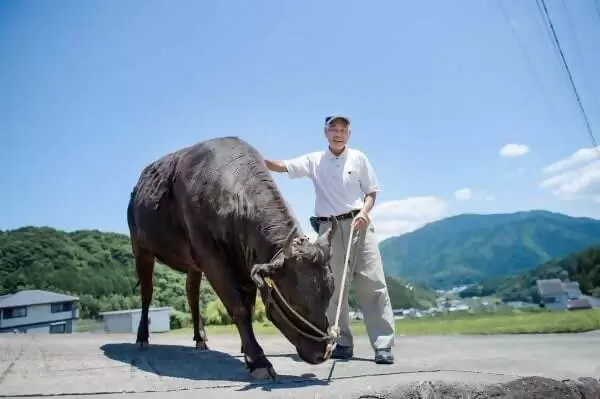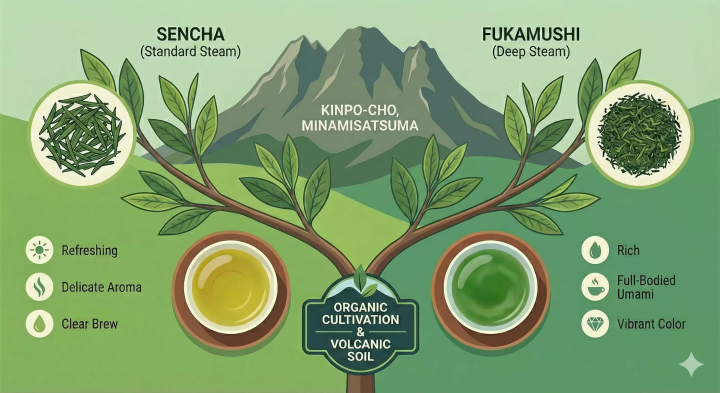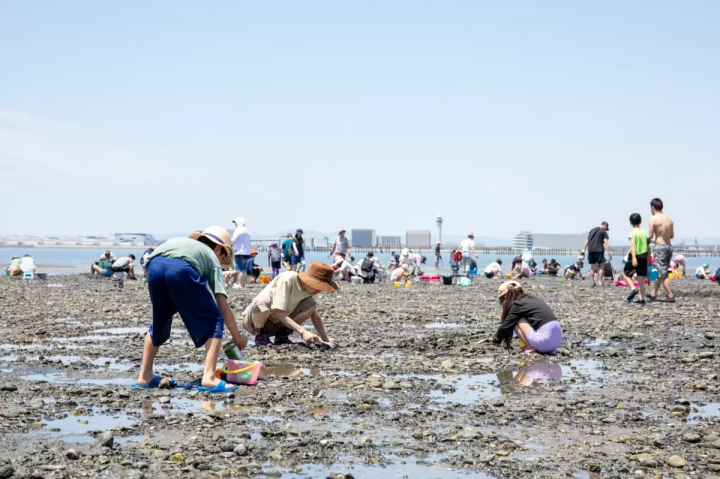Directly connected to Kyoto Station! Ranking of ramen shops popular among foreigners in Kyoto Ramen Koji

We conducted a survey with visiting foreigners at "Kyoto Ramen Koji," located on the 10th floor of the Kyoto Station Building!
This time, we conducted a survey of ramen restaurants targeting foreign visitors to Japan at Kyoto Ramen Koji, located on the 10th floor of the Kyoto Station Building! Although the hot summer has finally come to an end in Kyoto, it is still a little early to enjoy the autumn leaves, so we thought there would be fewer foreign tourists visiting Japan, but contrary to our expectations, we saw many foreign tourists on the way to Kyoto Station. We headed to Kyoto Ramen Koji with high hopes of seeing many foreign tourists!
Why did you conduct your research at Kyoto Ramen Koji?
Kyoto is famous for its temples, shrines and beautiful nature, but it is also known as a ramen hotspot. Kyoto Ramen Koji in the Kyoto Station Building is a must-visit place to experience ramen from all over Japan, not just Kyoto!
For more information about Kyoto Ramen Koji, please see the official website below.
Survey results
The survey was conducted for seven hours from 11:00 to 18:00 on Wednesday, October 16, 2024. The ratio of customers was about 40% foreigners and 60% Japanese. This time, 67 foreigners who were approached responded to the survey. Thank you to all the foreign travelers who cooperated.
In the survey, we asked participants about their region, age, and which ramen restaurant they visited, so let's take a look at the results!
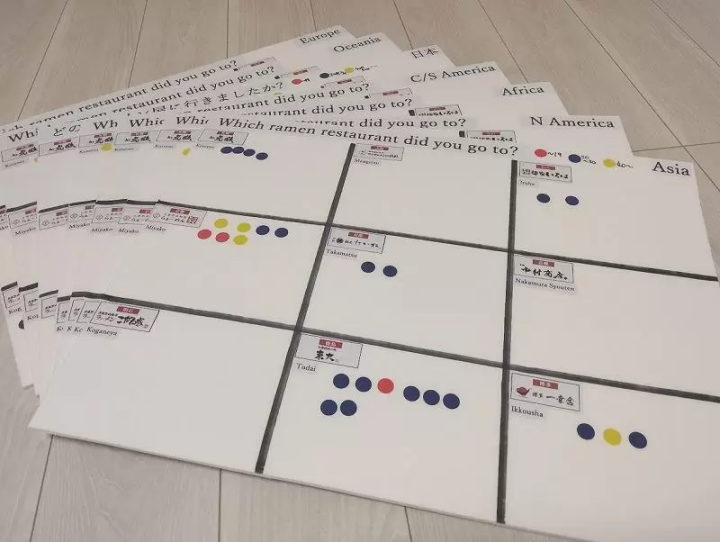

First, let's see where you all come from!
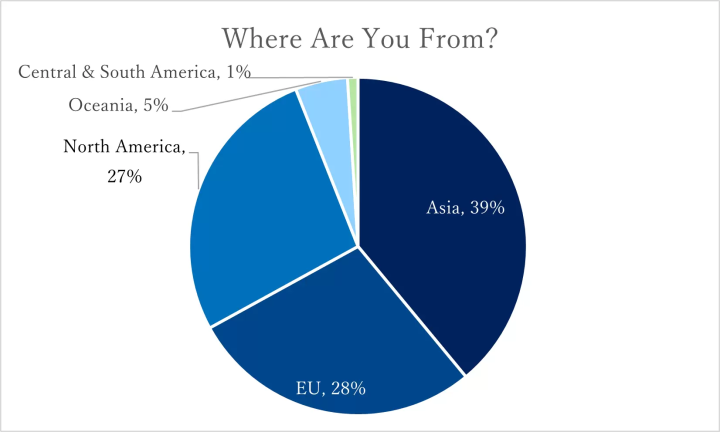
The largest number of visitors came from Asia, accounting for about 39%. There was an impression that there were particularly many from Hong Kong and Singapore.
Next came Europe at 28%. It seemed like there were people from a wide variety of countries, rather than just one specific country. Then there was North America at 27%, with the US and Canada being almost half and half.
Japan is located in East Asia and is relatively close to Southeast Asia, Hong Kong, and Taiwan. Therefore, we expected that about half of the visitors to Japan in this survey would be from Asia, but the results were lower than expected. On the other hand, we found that there were surprisingly many visitors from Europe and North America. This may be due to the weak yen. Inbound tourism is a constant topic in the news in Japan.
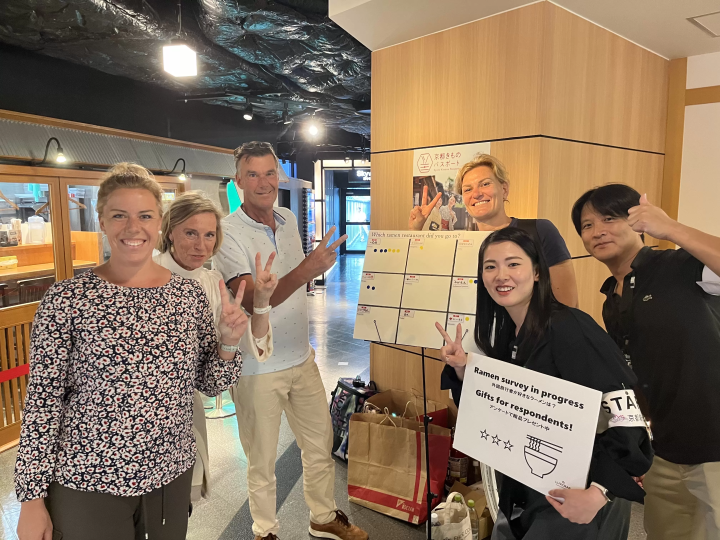
Now, let's take a look at which ramen restaurants were most visited!
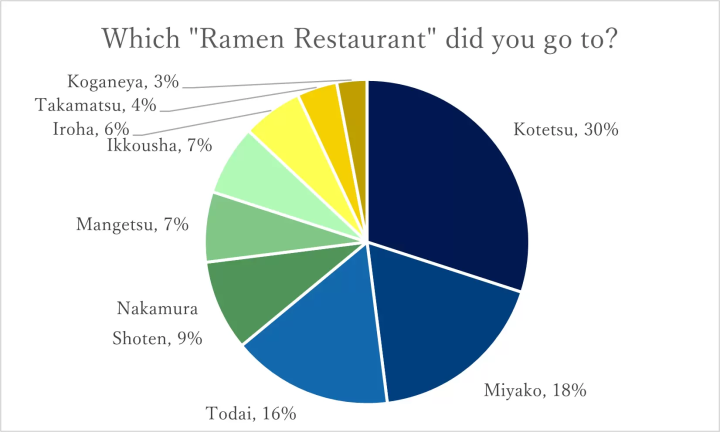
However, this time the interviews were conducted near "Menya Kotetsu" and "Ramen Toudai," so the results may be slightly biased. Both ramen shops ranked first and third, respectively.
The proud No. 1 is "Menya Kotetsu." Sapporo ramen originated in Hokkaido and is one of the most representative ramen in Japan. In addition to its signature miso ramen, the lineup also includes soy sauce and salt-flavored soups. Each soup is an exquisite match with the medium-thick yellow curly noodles that are a characteristic of Sapporo ramen.
Coming in second is "Gion Ramen Miyako." The main store is, of course, here in Kyoto, and serves ramen with rich chicken broth. It also offers toppings of raw vegetables (150 yen), so it seems to be popular with health-conscious people and women! Perhaps the "if I'm in Kyoto, I should try Kyoto ramen" mentality is at work, but despite its unfavorable conditions of being located at the back of Ramen Alley and far from the survey booth, it has made it into a respectable second place.
Coming in third is "Ramen Toudai" from Tokushima. Its unique features are sweet and spicy stewed pork belly and raw egg. Yes, this ramen is reminiscent of "sukiyaki," the soul food of the Japanese! Just like sukiyaki, this ramen cannot be discussed without the raw egg, but I was surprised to see how well-received it was outside of Japan, where eating raw eggs is not a common custom. In particular, many foreigners from Asian countries visited the ramen shop.
Of course, the ramen restaurants other than the three that made the list were also bustling with customers!
Finally, let's take a look at what age group is most prevalent!
The survey was conducted in three age categories: under 20, 20-39, and over 40.
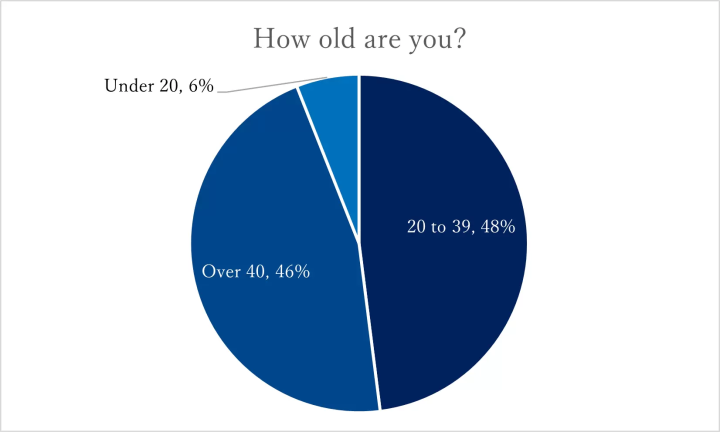
There were few families with children (younger than college students), and the impression was that most of the customers were middle-aged or older families or groups of friends. If it was the holiday season, there might be a lot of families with children! Incidentally, on the day the survey was conducted, the place was bustling with middle school and high school students on school trips. Japanese students love ramen too!
These are the results of the survey, but we will also introduce some of the questions we received from customers during the survey. Why not use this as a reference when choosing a restaurant?
Q: Do you have ramen for vegetarians?
A: "Men-ya Iroha" offers halal and vegan-friendly ramen, "Nakamurashoten" offers halal and vegetable-friendly ramen, and "Ramen Koganeya" offers vegetable-friendly ramen.
Q: Do you have spicy ramen?
A: There are various levels of spiciness, from moderate to very spicy. If you want something moderately spicy, I recommend the "Wantanmen no Mangetsu."
Q: Where can I eat Wagyu beef?
A: "Todai," "Gion Ramen Miyako," "Men-ya Iroha," "Nakamurashoten," and "Menya Kotetsu" serve ramen made with Wagyu beef.
Other things to do besides ramen at Kyoto Ramen Koji
Well, it's 4pm. Lunchtime is over and the crowds have thinned out, so we take a break at Chasen, a matcha cafe located in Kyoto Ramen Koji. Chasen serves sweets and drinks made with matcha, a type of green tea. The highlight is the Matcha Tamatebako Sweets. These sweets are inspired by the souvenirs given to Princess Otohime in the Japanese fairy tale Urashima Taro. They are served in a box, and when you open the lid, smoke comes out, which is sure to create a buzz on social media!
However, this time I decided to have an iced matcha latte to quickly recover from the energy I had lost during the interview.
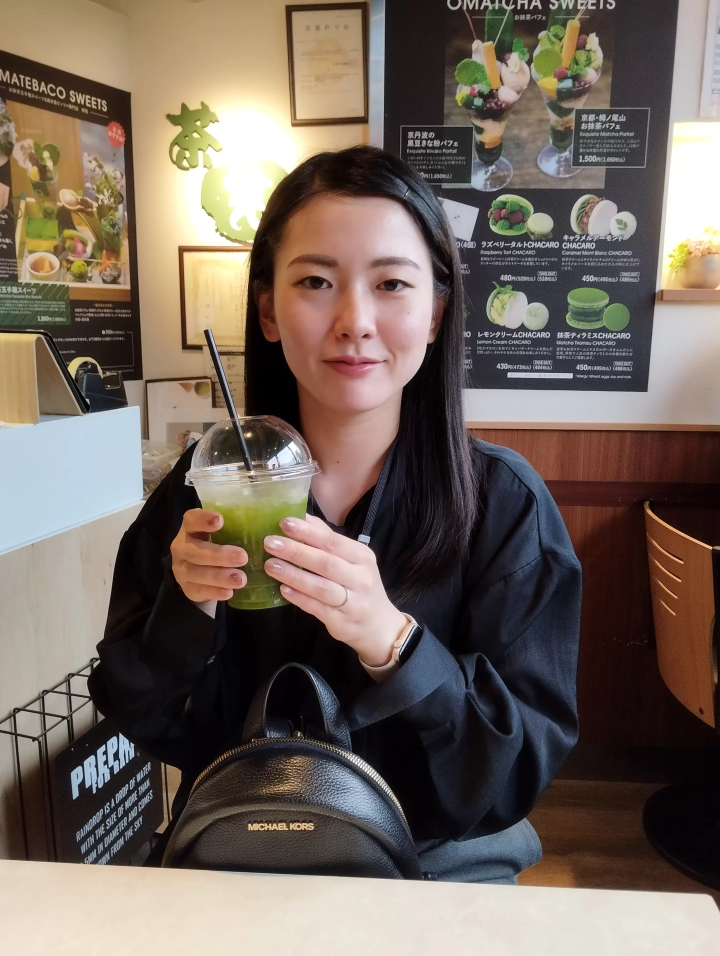
Senshu towels will be given to survey respondents!
Now, customers who answered this questionnaire were gifted a Senshu towel (40 x 40cm hand towel), a specialty of the Senshu region of Osaka. This towel is a product of Marunaka Co., Ltd. and is sold under the HIORIE brand. It is an ideal towel with excellent texture, absorbency, durability, and little shedding.
There are 18 different color variations in the lineup, but this time we have prepared the five most popular colors: light gray, off-white, peach blossom, mocha, and hotel blue. After answering a questionnaire, customers were asked to choose their favorite color to take home. While we're at it, let's also rank the most popular colors!
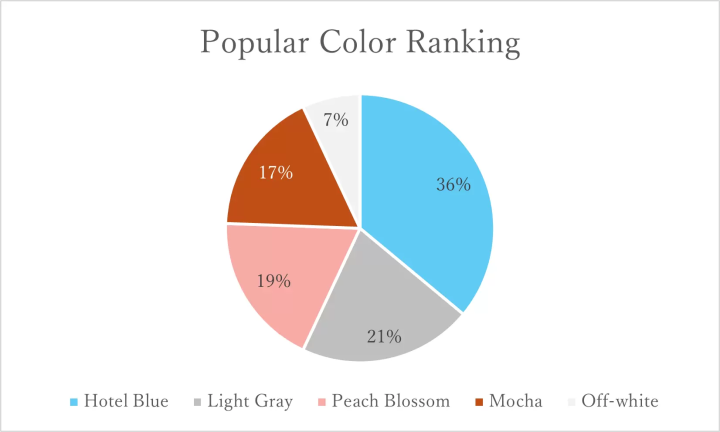
The most popular color was not the safe off-white, but the refreshing hotel blue! White towels have a clean look and at first glance seem like they would be an easy choice, but they came in last. Hand towels are often used on the go, so colors like blue and pink may be popular. Which color is your favorite?
About our activities
We operate an online e-commerce site called Luxcras with the mission of delivering excellent Japanese products to the global market. We sell not only towels, but also traditional Japanese crafts and products. During your trip to Japan, we hope you will enjoy Japanese culture and products to the fullest, and if you find any products that you like, please visit our site.
The HIORIE brand Senshu towels that were given as gifts this time are also available for purchase.
We introduce famous tourist spots as well as recommended sightseeing spots in Japan. In addition to sightseeing spots, we also introduce Japanese specialty products and traditional crafts.
The contents on this page may partially contain automatic translation.































![[Kagoshima] Overcoming 12 Years of Hardship: Walking through Minamisatsuma City, the sacred land where the monk Ganjin landed](https://resources.matcha-jp.com/resize/720x2000/2026/02/21-259481.webp)
